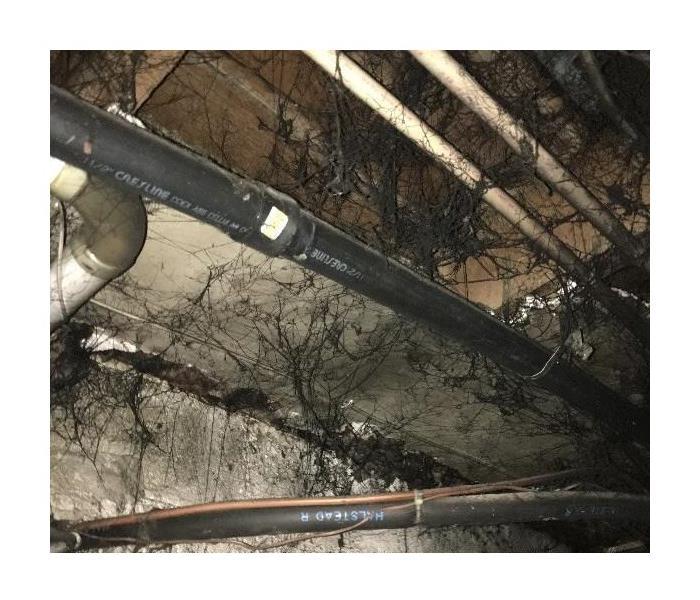What is a Puffback?
1/16/2020 (Permalink)
As the weather gets colder, more and more homeowners are turning on their heating systems for the first time in months. Unfortunately for many, this means the possibility of puffbacks.
What are puffbacks, and what causes them?
Puffbacks usually take place due to lack of maintenance or age-related issues. A puffback occurs when a boiler or furnace misfires, causing an explosion of unburned fuel in the combustion chamber. This causes a release of smoke and soot that can be both incredibly messy and dangerous. Luckily, there are a few simple ways to prevent a puffback from occurring in your home.
First and foremost, ensure that your heater is inspected annually by a qualified technician. This is crucial, as this annual inspection will ensure that all parts of the heater are functioning properly. Regular inspections are also very important as manufacturers have the ability to ask for records of these should you ever have a warranty claim.
Warning Signs
Listen for strange sounds and pay attention to any strange odors. Most heating systems will usually give plenty of warning prior to a puffback occurring through soot and gas odors throughout the building. If you hear any unusual noises when your heater starts up, unburned oil is probably being ignited. Keep an eye out for any oil leaks and soot on and around your heater and keep the area around the heater clean and free of any dust, debris, or content (storage items, paper, boxes etc.). If you notice any of these warning signs, call a qualified service technician immediately to diagnose the issues and make repairs.
After a puffback, the soot can cover everything in your home. This means walls, furniture, curtains, and even inside drawers! Soot is not just powdery; it is black, sticky, and includes a mixture of oil. This makes it especially difficult to clean. If you experience a puffback in your home, call a trained HVAC technician to repair your heating system. Then, call us here at SERVPRO of Media to help clean the chemicals and soot left behind to make it “Like it never even happened.”






 24/7 Emergency Service
24/7 Emergency Service
